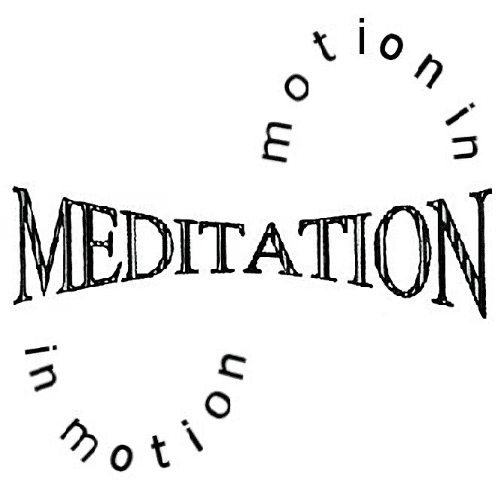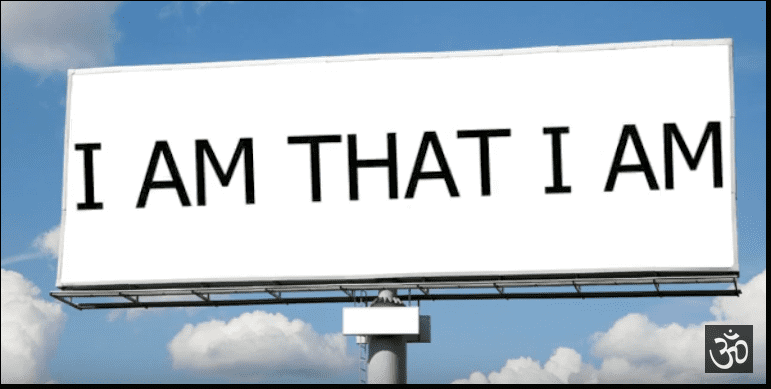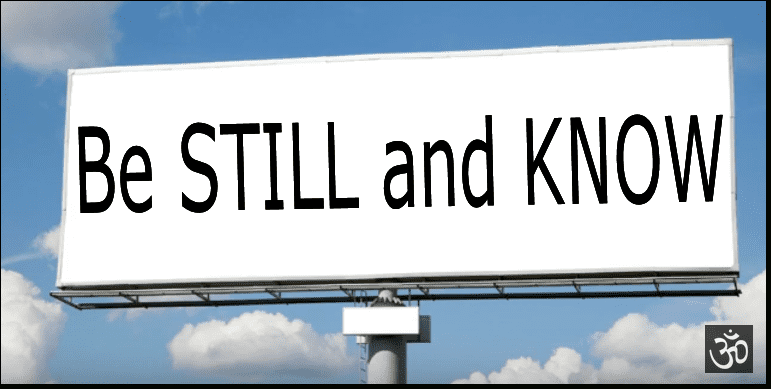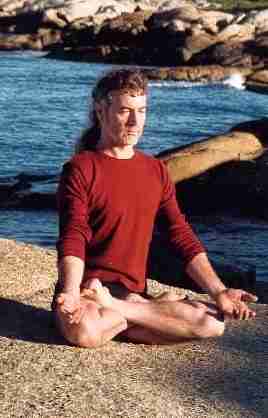“Who am I when the mind stops talking?”
This question cannot be answered by the mind – it can only be answered via experience.

Seven Stages of the Spiritual Journey
Audio: Yoga Nidra Yoga with James Traverse
Presence –
You cannot know WHAT you are,
yet you can know THAT you are!
I AM THAT I AM is the whole truth.
BE STILL AND KNOW is the method.


Knowledge via Book-Learning is not the same as Self-Knowledge and Wisdom
The mind is a function. Its content is knowledge.
Knowledge is useful yet it is always limited due to the fact that more can always be added.
Being Still and Knowing is a practice that reveals that there is knowledge that is other than the knowledge of Book-Learning, Google, and chatGPT. It is experiential knowledge or wisdom gained through personal experience, observation and INSIGHT. This type of knowledge is often described as intuitive or innate and is acquired through direct experience or personal reflection.
Experiential knowledge, also known as practical knowledge, is a way of knowing and understanding things that is based on direct experience. Unlike book-learning or theoretical knowledge that is acquired through reading, studying or memorization, this type of knowledge is gained through hands-on experience and observation.
Experiential knowledge is often seen as a more concrete and reliable form of knowledge than theoretical knowledge. It can provide a deeper understanding of how things operate, how to use tools and material, and how to complete tasks. Experiential knowledge can also be beneficial for problem solving, as it allows for exploration and experimentation.
Beyond Book-Learning 2023
Experiential knowledge is often more meaningful and memorable, as it is rooted in experience, rather than just abstract concepts. Experiential knowledge can help to develop important skills such as communication, leadership, and critical thinking, as it allows for active involvement in the learning process.
Experiential knowledge can be gained through a variety of practices, including meditation, mindfulness, yoga, yoga nidra, and spending time in nature or connecting with a wisdom elder, a guru. These practices allow individuals to connect with their inner selves and cultivate greater self-awareness, which can lead to deeper insights and understanding of the world around them.
For example, through practices like mindfulness and meditation, individuals can develop a greater awareness of their thoughts, emotions, and bodily sensations. This can help them recognize patterns in their own behavior and gain a deeper understanding of their own motivations and desires.
Cultural knowledge and traditions are another example of experiential knowledge. These are often passed down from generation to generation through stories, rituals, and practices, and are intimately tied to the history and experiences of a particular community or culture.
Practical skills and trades are another form of experiential knowledge. Skills such as carpentry, cooking, and gardening are learned through hands-on experience and apprenticeship, often over a period of many years.
Lastly, spiritual or philosophical insights can also be gained through personal exploration and contemplation. Practices like meditation, yoga, yoga nidra, and other forms of contemplative inquiry allow individuals to access deeper states of consciousness and connect with a greater sense of purpose, meaning, and interconnectedness.
Experiential knowledge is a valuable and essential aspect of human learning and development, and can complement and enhance more traditional forms of book-learning in 2023 and today’s education processes.
Ultimately, experiential knowledge is self-knowledge that is deeply personal and subjective, and it involves a degree of intuition, creativity, innovation and especially insight that cannot be found in traditional forms of education.
The Mind is a Function – it is an Excellent Servant and a Poor Master
The saying “the mind is an excellent servant and a poor master” is an important reminder that we should strive to be mindful of our thoughts and emotions, and to use them to our advantage.
While the mind can be a powerful tool, it can also become a burden if it is not kept in check. When we allow ourselves to become too wrapped up in our thoughts and emotions, we can become overwhelmed by them and can find it hard to focus on the task at hand.
It is important to remember that the mind is a servant, and it should be used to guide us towards our goals and aspirations, not to control us. We can use positive affirmations and mindfulness techniques to help us stay focused and stay in control of our minds. With practice and patience, we can become better at managing our thoughts and emotions, and using our minds to our advantage.
Be Still and Know
The Knowing that is when the mind is still is the means to access experiential knowledge as it is a switch from doing to being. This switchover to self-knowledge shows us that although we use our bodies, minds and senses, what we are fundamentally is something other than these.
There is a popular saying in some spiritual enlightenment courses and philosophical traditions that emphasizes the idea that we, as human beings, are not limited or defined by our thoughts and mental processes. Rather, the mind is seen as a tool, or a servant, that we can use to help us achieve our goals and navigate the world around us.
This perspective confirms that we are something beyond our thoughts and emotions, and that our true nature lies in a deeper, more fundamental aspect of our being that is sometimes called the “observer self” or the “witness consciousness.” This aspect of our being is seen to be distinct from the ever-changing contents of our mind, and is often associated with a sense of inner peace, detachment, and equanimity.
When we see ourselves as distinct from the mind, we develop a greater sense of control over our thoughts and emotions, and avoid becoming overwhelmed or identified with them. This flowers as a greater sense of inner freedom, clarity, and purpose in life, as well as more effective decision-making and problem-solving skills.
Is there Mental Activity that does not Break Stillness?
Yes. Be Still and Know does not mean that the mind cannot be active.

The mind can be silent when one is sitting still in meditation or resting in yoga nidra, yet it is also possible to for the mind not to break stillness when it is active. This happens when the mind is fully absorbed in an activity such as singing, music, dance or any form of art. In this light Singing and Music are Sound that does not break Silence, Dance is a movement that does not shake Stillness and Art and Architecture are forms that do not displace Space.
Chapter 4 verse 18 of the Bhagavad Gita says:
“karmaṇyakarma yaḥ paśyed akarmaṇi ca karma yaḥ |
sa buddhimān manuṣyeṣu sa yuktaḥ kṛtsna-karma-kṛt ||”
This verse can be translated as:
“One who sees inaction in action, and action in inaction, is intelligent among men, and he is in the transcendental position, although engaged in all sorts of activities.”
This verse is often interpreted as teaching the importance of detachment and non-attachment to the results of actions, and instead focusing on the actions themselves as a way of transcending the cycle of birth and death. The idea is that by performing actions without attachment to the results, and by seeing inaction in action, one can cultivate a sense of inner peace and detachment, and come to a deeper understanding of the true nature of reality.
In this verse, Krishna, who is the speaker in the Bhagavad Gita, describes the ideal state of being for a human being – someone who can maintain a state of balance in the midst of all types of activities. The intelligent person is one who remains aware of the true nature of action and inaction without becoming attached or entangled by the consequences of their actions.
This verse emphasizes the importance of living in a state of detachment, awareness and focus on one’s actions rather than being overly concerned with the results of those actions. It highlights the importance of cultivating inner peace through self-awareness and detachment, and focuses on the transcendental nature of the spiritual path.
This verse can also be seen as a pointer to the switchover from doing to being.
Presence – Be Still and Know Beyond Book-Learning in 2023
When the mind is silent there is Knowing that Knows Itself.
When the mind is silent, we are able to tap into a deep inner wisdom that is beyond the realm of our limited understanding.
This Knowing can help us to access inner strength, spiritual guidance, and creative insight that can help to bring clarity to our lives. It is a state of being that can bring a sense of deep peace and contentment, even in the midst of chaos and confusion.
When we are able to access this Knowing, it is like being connected to a vast source of infinite wisdom that is available to us.
This Knowing can help us to understand the deeper meaning in life, and to find our true purpose. It can help us to make decisions that are in alignment with our highest values and to create a life that is authentic and meaningful.
Namaste’
James
Yes – I AM THAT I AM is the whole truth.
BE STILL AND KNOW is the method.
Pingback: How to Overcome Anxiety and Fear Via Self-Realization -
Pingback: The Art of Awakening: A Guide To Spiritual Growth
Pingback: Understanding Karma - What It Is And How It Works